Manchester attack: The Libya-jihad connection
- Published
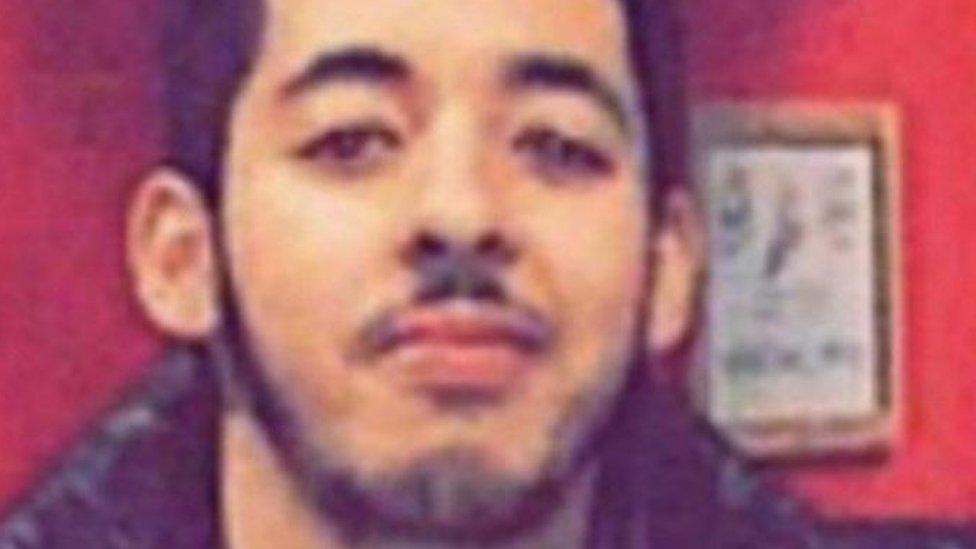
Salman Abedi has been named by police as the Manchester bomber
As each hour passes we learn more about Salman Abedi. What we don't know yet is his exact journey from Manchester-born boy to suicide bomber.
The BBC has been told by a Muslim community worker that members of the public called the police anti-terrorism hotline about Abedi's extreme and violent views several years ago.
We don't know how the police responded to these reported hotline calls - but we have also learnt that earlier this year, Abedi's behaviour again raised concerns.
According to our sources, he told local people about the value of dying for a cause.
He also made hardline statements about suicide bombings and the conflict in Libya.
The Libyan connection
Abedi's parents fled Libya as opponents of Colonel Gaddafi's regime.
Libya, alongside its North African neighbours, has been a centre for the rise of modern Islamist political movements.
These movements were originally dedicated to overthrowing dictatorial regimes and, to varying extents, promoting the idea of Islamic government.
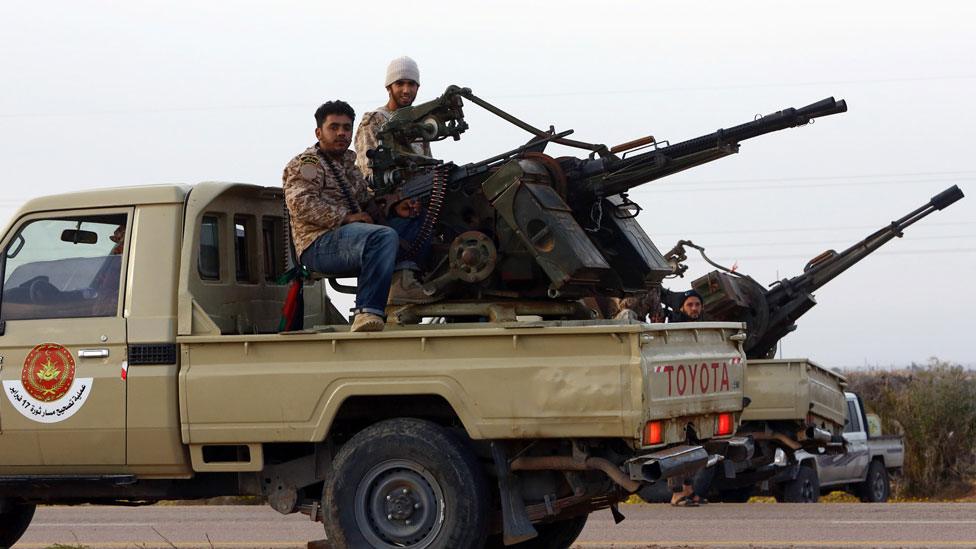
Libya has a complicated array of Islamist militias, with many opposed to IS
The Libyan Islamic Fighting Group (LIFG) wanted to overthrow Gaddafi and became the dominant revolutionary force in the country in the 1990s, until the dictator began turning the screw.
Many of those with Islamist connections tried to flee - and many of them were granted refuge in the UK.
Salman Abedi's father, Ramadan, was part of the broad network of opponents who supported those Islamist anti-Gaddafi aims. He arrived in the UK in the early 1990s.
We have been told by senior LIFG sources that he was not a member of the organisation. But he was known to be a dissident with some of the same political goals.
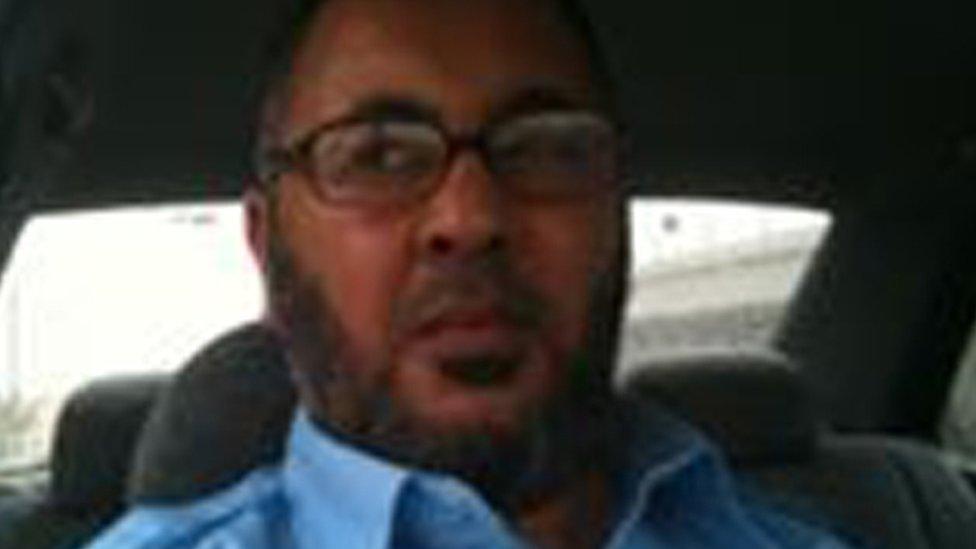
Ramadan Abedi
Refuge in Britain
That brings us to south Manchester. It has long been a centre of Libyan politics in the UK, if not Europe.
It's where the British government gave refuge to many of those Gaddafi opponents - Birmingham and London being the other locations.
Some of the Libyans in the UK, and in particular from Manchester, were later suspected by the security services of being aligned to al-Qaeda.
I have spoken to some of these men down the years. They say their jihad was against Gaddafi alone. They wanted him overthrown.
And overthrow him they eventually did - with the help of the British and Americans.
As the Arab Spring grew and Gaddafi began to wobble, these dissidents - and a fair few of their British-raised sons - returned to their revolutionary roots.
Many joined the February 17th Martyr's Brigade, one of the key fighting units in that war. We have been told that Salman Abedi's father was part of the group who left the UK for one last battle against Gaddafi.
The BBC has been trying to put these questions to Ramadan Abedi. Shortly before that was to happen, Mr Abedi was arrested by security forces in Libya.
Manchester fighters
There were others from Manchester who went to fight - and most of them lived very close to each other.
Just a mile away from the Abedi home lived Abdal Raouf Abdallah - now jailed for five-and-a-half years for terrorism offences.
Abdallah was among the young British-Libyans who fought to overthrow the dictator - and he nearly paid for it with his life. He was shot in the back and was paralysed from the waist down.
He returned home proud. But at his later trial, prosecutors said his revolutionary fervour led him to facilitate the travel of other men from Manchester to join terror groups in Syria.
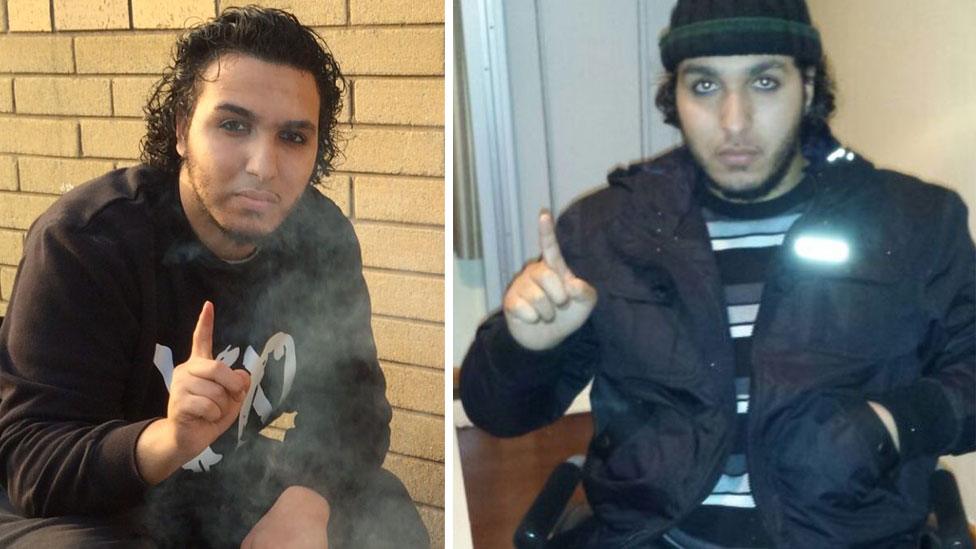
Manchester-born fighter Abdal Raouf Abdallah became a recruiter
He protested at his trial that he hated the so-called Islamic State group - as did one of the men he was helping, Muslim convert Stephen Mustafa Gray.
Not all of the men from this area were of Libyan heritage. One of the biggest IS recruiters locally was a man called Raphael Hostey - he lived halfway between the Abedis and Abdallah. My colleague Steve Swann has previously reported on how this young man played a key role in getting others from Manchester into Syria.
In all, south Manchester has been one of the hotspots of Syria-linked militancy in the UK: Six have gone to fight and die, at least four more are believed to be fighting and another half a dozen jailed.
Those cases and others that cannot be reported for legal reasons give some indication of a triangle of Islamist-jihadist connections between Manchester, Libya and Syria and you can read more them in our unique database of recent British jihadists.
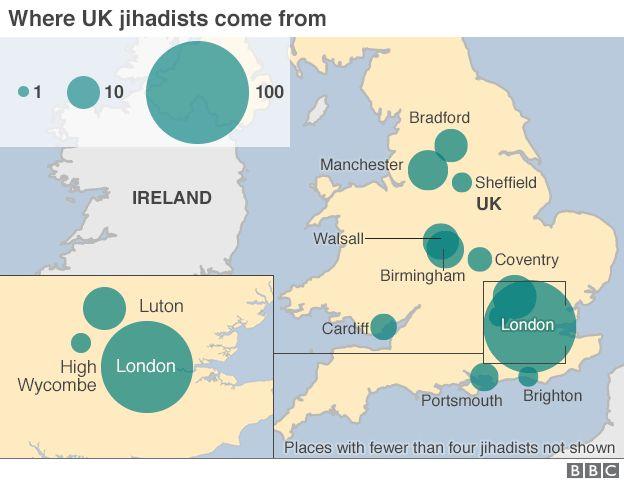
It is a complicated picture and there are still lots of unanswered questions about what precisely happened to Abedi.
A family friend in Tripoli has told BBC News that Ramadan Abedi took his son out of the city fearing the "influence of gangsters and criminals." Mr Abedi reportedly said he feared his son was becoming increasingly drawn into drugs and criminality after the death of one of his friends in nearby Moss Side.
Salman's younger brother, Hashem, was also in Libya. He too has been detained by security forces on suspicion of links to IS.
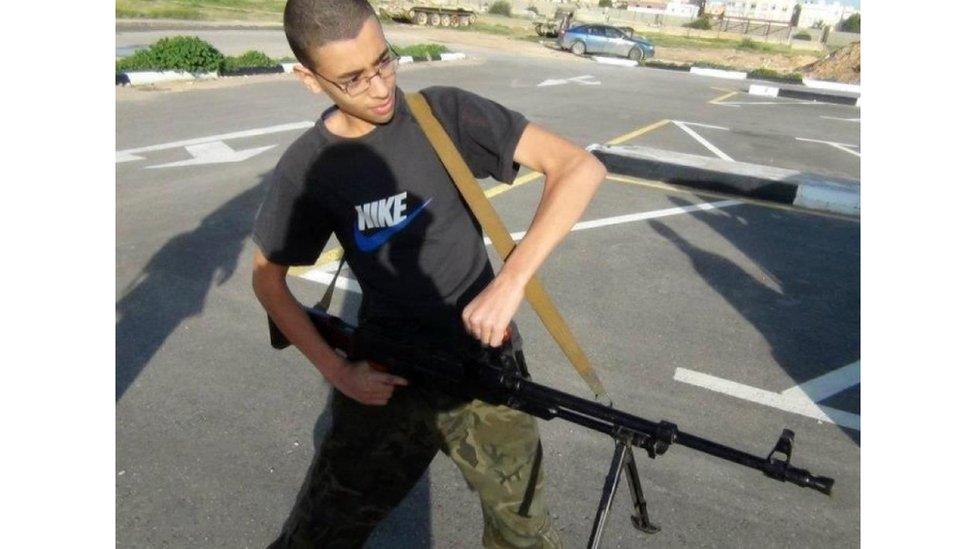
Hashem Abedi: Pictured in Libya
According to the family friend, Salman had been living with his father in Tripoli - and then five days ago unexpectedly took his passport and left without warning.
One of the recent stand-out concerns from security analysts is that Libya - with its easier transport routes across the Mediterranean into Europe - would become a far easier jumping-off point for extremists determined to bring their violence to Britain. It's looking increasingly likely that Salman Abedi's attack has made their point.
- Published12 June 2017
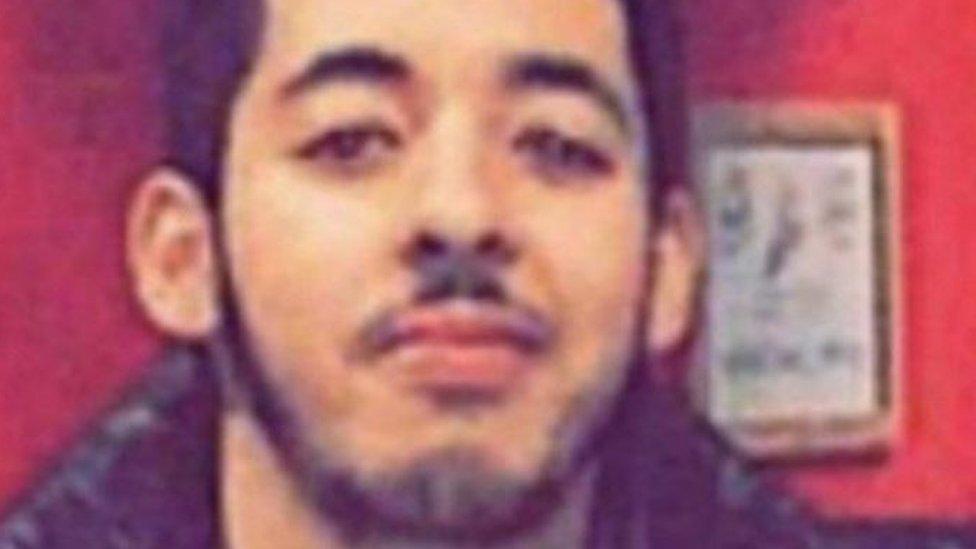
- Published3 November 2022

